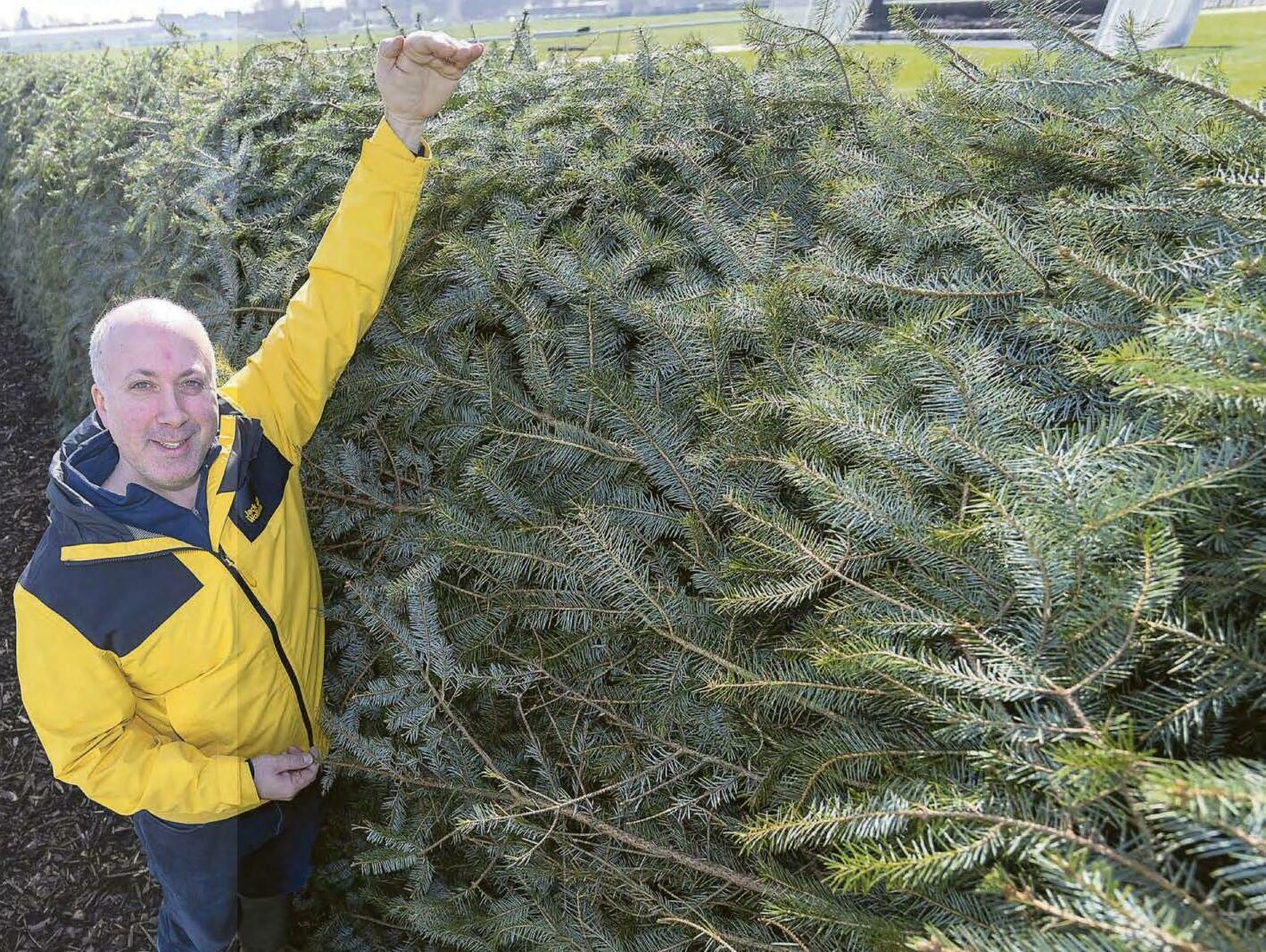The Daily Express had an exclusive glimpse at how the most iconic obstacles in sport are painstakingly constructed weeks in advance in what was a fascinating, behind-the-scenes visit.
Seen up close, their height leaves you quaking. But, as I joined crews weaving the Norwegian spruce branches into this Saturday's Grand National fences, I found out that their size actually has a vital horse welfare purpose.
And I could only marvel at the detailed, round-the-clock efforts the Merseyside team put into making the "world's greatest steeplechase" the safest event any jump race can be.
It's the morning of Monday, March 24, and less than two weeks before the 177th running of the Grand National, one of the most watched and wagered on sports event in Britain.
The race first began 186 years ago in 1839. But, throw in two world wars, the abandoned false start race of 1993, plus Covid's virtual race, and you have the 177th running of the legendary four-mile, two-and-a-half furlong event this year.
image [https://cdn.magzter.com/1583504377/1743552593/articles/dk4DWHpI9DEO8Ys4Q6sys/4334444553.jpg]
Myself and Express photographer Andy Stenning rocked up to the Liverpool course to meet Aintree estates manager Stephen Fyles, 41, and our fence-building expert guide for the day, groundsman Paul Black, 46. As you'd expect, security is watertight and the whole racetrack is a bustling hive of activity as delivery trucks trundle past, sponsor banners are erected and bars are stocked.
They are even constructing a brand new pub on the concourse for this weekend's thirsty drinkers, who will down 10,000 bottles of fizz, 193,000 pints of Guinness and lager and 62,000 shots of vodka over the three days of the full Grand National Festival.
We meet Stephen and he first scoots us around the track using the access road to show the fences already built, and ones beginning to be layered with olive green spruce.
We stop at The Chair, at 5ft 2in the tallest fence, with a 6ft ditch in front the horses have to leap over, making it possibly the toughest obstacle the horses will jump.
There are 16 different fences on the gruelling course in total. Some 14 are jumped twice and two - Fence 15, The Chair, and Fence 16, the Water Jump - just once.
I hopped into the 6ft-wide ditch of The Chair to just stand awestruck at its thrilling splendour, imagining legendary mounts like Red Rum soaring over my head in their steely determination to put this fence behind them and settle into a rhythm for the rest of the race.
It's so named after a chair once placed on the stand-side, where a judge had sat when races were run in heats, with horses too far behind the others disqualified for the later races. It is also the site of the only human fatality of the Grand National, back in 1862 when jockey Joe Wynne fell and died from his injuries.
The risks of jump racing to riders and horses are always forefront in the minds of riders, trainers, owners and the Jockey Club which owns Aintree and 14 other courses, including Cheltenham and Newmarket.
Last month, the normally ebullient Cheltenham Festival had a minute's reflection to honour jockey Michael O'Sullivan, who died aged 24 following a fall in a two-mile race at Thurles, in his native Ireland, in February.
His death shocked the racing world and reminded us of the sport's perils - dangers the Jockey Club has tirelessly fought to counter and mitigate with swathes of safety changes. Some we saw close up later when I helped build Fence 13.
Hearing the ground staff discuss Aintree's care of the mounts, the stables, the scientific watering of the course to boost safety and the innovation of these famous fences, it is clear that they simply adore horses.
Joining me at The Chair, built before my arrival with woven layers of spruce, Stephen explained what lay underneath the artfully constructed fence - and he should know, having first arrived to work on Aintree's fences in 1997.
image [https://cdn.magzter.com/1583504377/1743552593/articles/dk4DWHpI9DE...


